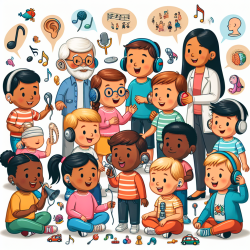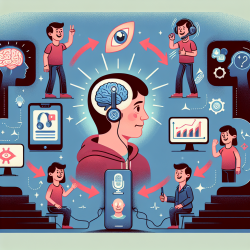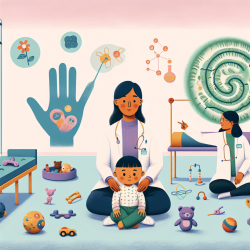Hearing loss in newborns is a significant concern that can impact language, social, cognitive, and emotional development if not identified and managed early. In Canada, efforts to implement universal newborn hearing screening (UNHS) programs have been ongoing, aiming to detect hearing impairments within the first few months of life. A comprehensive study titled Newborn Hearing Screening Programs: A Truly Canadian Perspective sheds light on the state of these programs across the country, providing valuable insights for practitioners looking to improve early detection and intervention strategies.
The State of Newborn Hearing Screening in Canada
The study, conducted by David K. Brown, Joseph C. Dort, and Reginald Sauve, utilized the Canadian Newborn Hearing Screening Survey to assess the prevalence and characteristics of hearing screening programs across Canada. Despite the recognized importance of early hearing detection, the findings revealed that a significant number of newborns are still not being screened for hearing loss. Only about 10% of Canadian hospitals had a newborn hearing screening program, covering just 25% of infants born during the survey period. This highlights a critical gap in early hearing loss detection efforts.
Improving Practitioner Skills Through Research Insights
For practitioners working in the field of pediatric hearing loss, this research provides critical insights into the challenges and opportunities within current screening programs. Implementing the outcomes of this study can significantly enhance the effectiveness of early hearing detection and intervention (EHDI) programs. Here are several strategies practitioners can adopt:
1. Advocating for Universal Newborn Hearing Screening
One of the primary takeaways from the study is the need for widespread implementation of UNHS programs. Practitioners can play a crucial role in advocating for policy changes and increased funding to support the establishment of universal screening programs in all healthcare facilities.
2. Utilizing Technology and Training
The study found an even split in the use of otoacoustic emissions (OAE) and auditory brainstem response (ABR) technologies for screening. Practitioners should be proficient in both methods to ensure comprehensive screening. Additionally, investing in training for a diverse range of healthcare professionals can help address staffing shortages and ensure that more newborns are screened.
3. Enhancing Data Management Systems
Only 31% of the screening sites used a computer-based data management system, according to the study. Improving data management practices can help track screening outcomes, follow up on referrals, and monitor the long-term development of children diagnosed with hearing loss.
4. Expanding Screening Beyond Urban Centers
The distribution of screening programs between urban and rural areas was nearly equal, yet the majority of births occur in urban centers. Practitioners should focus on expanding screening programs to rural and remote areas to ensure that all newborns have access to early hearing detection services.
5. Fostering Interdisciplinary Collaboration
Collaboration across disciplines is essential for the success of UNHS programs. Audiologists, nurses, technicians, and other healthcare professionals must work together to create an efficient and effective screening process. Sharing knowledge and best practices among professionals can lead to improved outcomes for newborn hearing screening.
Encouraging Further Research
Beyond implementing these strategies, it's crucial for practitioners to engage in ongoing research to continually assess and improve the effectiveness of newborn hearing screening programs. By studying the long-term outcomes of early detection and intervention, practitioners can contribute to the development of evidence-based practices that further enhance the quality of care for infants with hearing loss.
In conclusion, the Newborn Hearing Screening Programs: A Truly Canadian Perspective study provides valuable insights into the current state of newborn hearing screening in Canada. By adopting the recommendations and encouraging further research, practitioners can play a pivotal role in improving early hearing detection and intervention programs, ultimately leading to better developmental outcomes for children with hearing loss.
To read the original research paper, please follow this link: Newborn Hearing Screening Programs: A Truly Canadian Perspective.










